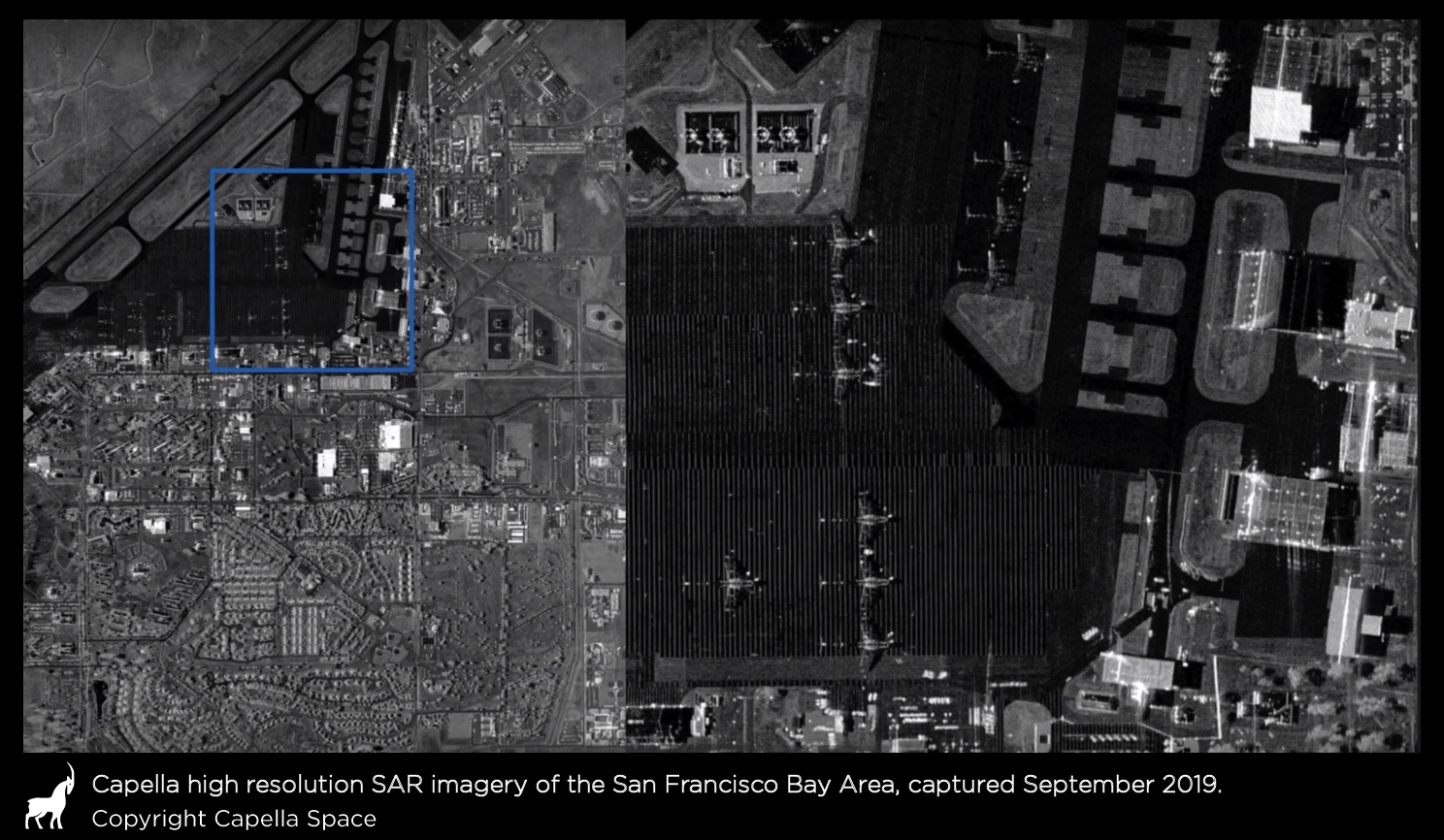SDA is interested in “novel remote sensing phenomenologies” for tracking missiles and other targets
WASHINGTON — Radar satellite imagery startup Capella Space on June 14 received a $3 million research contract in support of the Space Development Agency’s National Defense Space Architecture.
Capella Space was selected through a “broad agency announcement” issued by the space agency in January seeking proposals on a wide range of technologies for “National Defense Space Architecture Systems, Technologies, and Emerging Capabilities.” The award was posted on the federal contracts website SAM.GOV.
Based in San Francisco, Capella Space is building a constellation of synthetic aperture radar imaging satellites that can see through clouds and darkness.
The SDA is building a network of satellites in low Earth orbit for U.S. military communications and missile defense. It is developing a Transport Layer of data-relay satellites and a Tracking Layer of sensor satellites to detect and track missiles.
The agency in the broad area announcement (BAA) said it is interested in “novel remote sensing phenomenologies.” The agency is looking for “innovative distributed sensing concepts, novel sensing modalities, with applications to missile threat detection and tracking and surveillance of time critical targets.”
The BAA asked companies for concepts and assessments of how their technologies could support the SDA’s space architecture.
Capella Space last year won a DoD contract to provide airborne SAR data to the U.S. Navy. The company also has received contracts from the U.S. Air Force and the National Reconnaissance Office.
